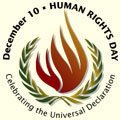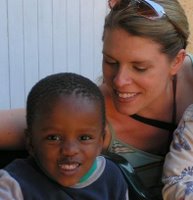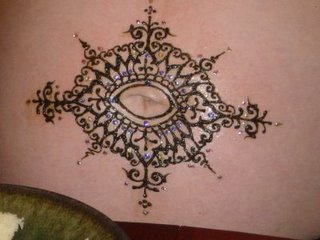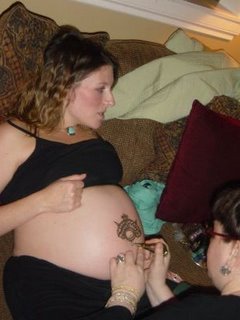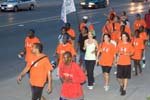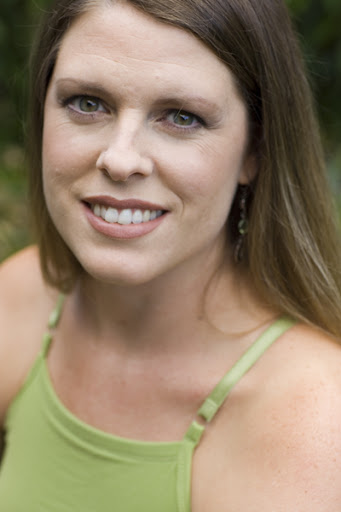Open House
 spent a great deal of my life wandering around, visiting fascinating places and meeting amazing people. In my travels I’ve gathered up a treasure trove of beautiful experiences, but have never paused long enough anywhere to allow roots to find their way into the earth I’ve stood on.
spent a great deal of my life wandering around, visiting fascinating places and meeting amazing people. In my travels I’ve gathered up a treasure trove of beautiful experiences, but have never paused long enough anywhere to allow roots to find their way into the earth I’ve stood on.I have been in Seattle now for exactly two years, during which time I married Pat, we bought a house, and we adopted two cats. Wow! I think I’ve sprung a root or two!!
Although I’ve always loved the idea of “community”, until now it has only been a theory I’ve longed to explore. After being in a small town in Zimbabwe last summer and witnessing the interconnectedness of neighbors, family, and friends, I came home inspired to find ways to reach out in my neighborhood. In the small African village there is a natural dependence on one another that supports strong community bonds. Here we prize our independence to the point of isolation. We have so much and are so busy, we don’t have the time or the apparent need for one another. My Zimbabwean friends find it hard to believe that many Americans don’t even know the names of their neighbors across the street.
Pat and I have made it a point to introduce ourselves to the neighbors on our street and have gotten to know one or two of them fairly well. But, I thought it was time we made more of an effort to develop bonds in our little “village”. So last week I handed out invitations around our block: A Holiday Open House—An opportunity to get to know your neighbors. I baked up a bunch of goodies and mulled some spiced cider, cleaned up the house and lit the candles. Then we sat on our couch and waited...
Suddenly I realized that no one was going to come. What was I thinking? Who would want to go to a complete strangers home during the middle of the busiest season of the year? My heart began to sink as the minutes passed. Just because I was gung-ho about “building community” in our neighborhood, why should I assume anyone else was interested?
But then there was a knock. An older couple that lives two houses down tentatively made their way into our living room. As I poured some cider for them, another knock. Then another. Soon our small home was overflowing with neighbors, drinking cider, eating goodies, meeting, and greeting.
There were rumors of an Olympic rower that lived somewhere in our neighborhood. There were hushed stories of the alleged murder that occurred in the house on the corner over a decade ago. There was debate about bio-diesel cars, and whether or not a tow truck was the best way to pull down the laurel bushes that grow incessantly on our streets. Favorite artists were discussed. Golf tournaments were planned. My Africa photo album made the rounds, while two little boys almost pulled our Christmas tree down.
We soon discovered that we were in the midst of a beautifully diverse community…there is the retired carpenter, the zoologist, the Pearl Harbor survivor, the gardener, the new mom, the grandmother. There are Asian-Americans, African-Americans, Hispanics, Buddhists, Catholics, Atheists, Democrats, Republicans, and Green-Party Hippies. You name it, our little neighborhood has got it! It’s fabulous!!!
Earlier, before everyone had arrived I had nailed a “hamsa” symbol by our door. It is an ancient figure of a hand with an “eye” in the middle of it, once used to ward off the “evil eye”. As I hung it in our entry, I prayed that it would symbolize a hand of blessing on all who entered and exited our home. And as each of our neighbors made their way out, thanking us for giving them the opportunity to gather together and get acquainted, I felt that hand of blessing on each of them, and especially on Pat and I. What a gift it had been for us to see our home full of new faces eager to “build community” with one another. I could practically feel my newly sprouted roots working their way into the earth I stood on.
For the first time in a long time, I have found home.
I pray our home will become known as The Open House to our friends and neighbors. A welcoming place of refuge, peace, comfort, laughter, healing…A place that those who enter and depart from feel blessed.
